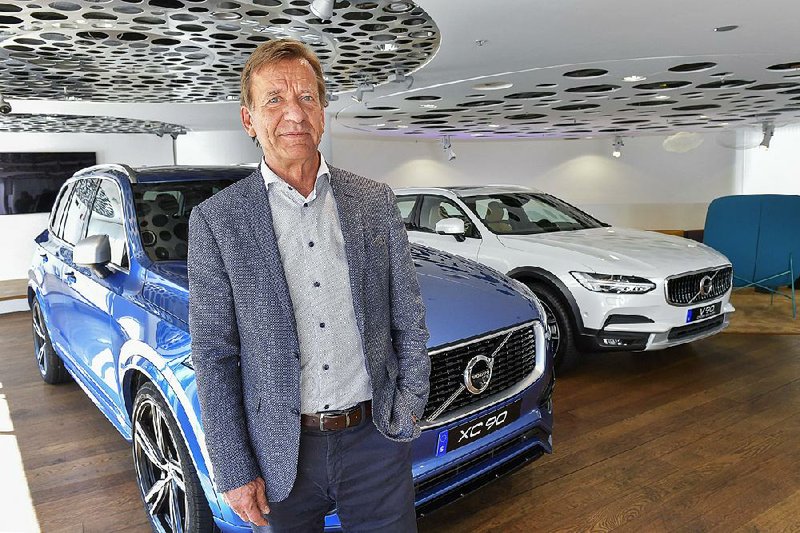FRANKFURT -- Volvo Cars said Wednesday that all the vehicle models it introduces from 2019 will be either hybrids or powered solely by batteries, betting that the era of the internal combustion engine is coming to a close.
The decision is the boldest commitment by any mainstream automaker to technologies that represent a small share of the total vehicle market. While major automakers offer hybrids and battery-powered vehicles, none has yet been willing to forsake cars powered solely by gasoline or diesel fuel.
Hybrids, which run on battery power supplemented by gasoline or diesel engines, accounted for about 2 percent of passenger-car sales in the United States last year, and the number has been declining because gasoline prices have fallen.
And cars that run solely on battery power are still rare in most countries because of high purchase prices, lengthy charging times and limited ranges.
Still, most carmakers expect the share of electric cars to grow quickly as the technology improves, prices fall and public charging stations become more commonplace. Rapid advances in self-driving cars will also encourage a shift to battery power: It is simpler to link self-driving software to an electric motor than to a conventional internal combustion engine.
"This announcement marks the end of the solely combustion engine-powered car," Hakan Samuelsson, chief executive of Volvo, said in a statement. The company would still produce older models with conventional engines after 2019.
But by focusing on electrification, Volvo can concentrate its limited research and development resources on new technologies rather than continuing to invest in fuel-powered motors that may become obsolete. With sales of 534,000 cars last year, Volvo is dwarfed by companies like Toyota, Volkswagen and General Motors, each of which sold about 10 million vehicles in 2016.
Volvo, which is based in Sweden but owned by Geely Automobile Holdings of China, also will be able to draw on technology developed by its parent company. Geely sells electric cars in China, one of the fastest-growing markets for battery-powered vehicles.
Volvo said Wednesday that it would introduce five models between 2019 and 2021 that would run solely on electric power. That includes two models sold under Volvo's Polestar brand, which the company is positioning as a maker of high-performance electrified cars.
Other models will include plug-in hybrids, which can be charged from power outlets and run for short distances solely on batteries, and so-called mild hybrids, which charge their batteries from the car's conventional engine or by recovering energy from braking.
"Volvo Cars has stated that it plans to have sold a total of 1 million electrified cars by 2025," Samuelsson said. "When we said it we meant it. This is how we are going to do it."
Business on 07/06/2017
